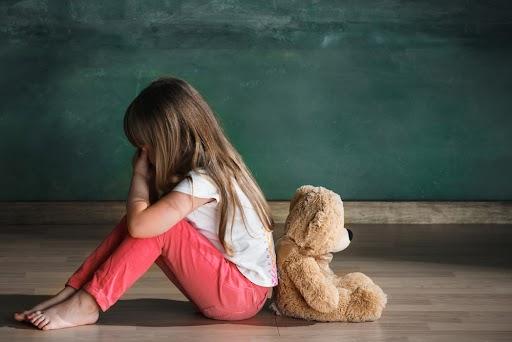Children Can Develop Mental Health Conditions Just Like Adults: Recognizing Signs of Mental Disorders in Children is Crucial for Timely Intervention and Treatment

What are Mental Disorders in Children?
Mental disorders in children, also known as childhood mental disorders, refer to health conditions where children experience changes in thoughts, emotions, and behaviors. This condition can lead to distress and problems in interacting with family, friends, or participating in school and social activities.
Mental disorders in children can cause changes in thinking, feeling, and behavior, and timely treatment is necessary.
12 Signs of Mental Disorders in Children
- Mood Changes
If you notice that your child seems sad, withdrawn, and this condition lasts for at least two weeks, it may be a sign of a mental disorder in children. The child’s mood swings can lead to difficulties both at home and at school. - Intense Emotions
A sign of mental disorders in children is when they suddenly experience very intense emotions that seem to arise without any clear cause. Be cautious, as this could indicate a mental disorder.These strong emotions are characterized by intense fear or anxiety that disrupts normal daily activities and may be accompanied by a rapid heartbeat or quickened breathing.
3. Signs of Mental Disorders in Children: Behavioral Changes
One of the signs of mental disorders in children is a sudden change in behavior. This is especially evident when a child suddenly exhibits violent behavior or engages in dangerous actions, such as fighting, climbing unnecessarily, using weapons, or having the intention to harm others.
4. Issues with Concentration
Children with mental health issues often cannot sit still and have difficulty focusing on tasks. This can lead to a decline in academic performance or in a sport where the child previously excelled.
5. Unusual Weight Loss
When mental health is affected, children often experience eating disorders. They may skip meals or eat less, leading to significant weight loss.
Additionally, children with mental health issues may frequently vomit without any apparent reason, which can also contribute to weight loss.
6. Unexplained Aches and Pains
Unexplained aches and pains can be a sign of mental disorders in children.
Some children with mental health issues may experience headaches or stomachaches without a clear cause. These children often exhibit more physical health problems than emotional symptoms.
7. Self-Harm
There are cases where children harm themselves by banging their heads against walls, cutting their arms, scratching their wrists, or overdosing on medication. These behaviors are clear signs of mental disorders in children that parents should be aware of. Children experiencing mental health issues may easily develop suicidal thoughts and need prompt intervention and treatment.
Being overly concerned about appearance, body shape, height, or weight can cause children to feel anxious and pressured. It is also a sign of mental disorders in children that you need to pay attention to.Conversely, children with mental health disorders may neglect their appearance and weight, showing no interest in grooming or taking care of themselves.
11. Difficulty Sleeping as a Sign of Mental Disorders in Children
Difficulty sleeping can be a sign of mental disorders in children.
If parents notice that their child frequently has trouble falling asleep, experiences restless sleep, or wakes up earlier than usual, it is likely that the child is facing mental health issues.
On the other hand, children who sleep excessively may also have problems related to their mental health. Sleeping too much and too often can indicate that the child is trying to avoid an issue in their life.
Additionally, parents should be alert for signs of mental disorders if their child often experiences nightmares, cries, or screams during sleep.
12. Reduced Social Interaction
The final sign of mental disorders in children that parents should be aware of is when the child gradually distances themselves from family, friends, teachers, and other social interactions. If the child shows signs of not fitting in, find ways to talk to them or contact a psychiatrist or psychologist for the best support.
If parents receive feedback from teachers, friends at school, or neighbors about unusual behaviors in their child, such as fighting or bullying others, it is very likely that the child is facing pressures affecting their mental health and needs early intervention.





